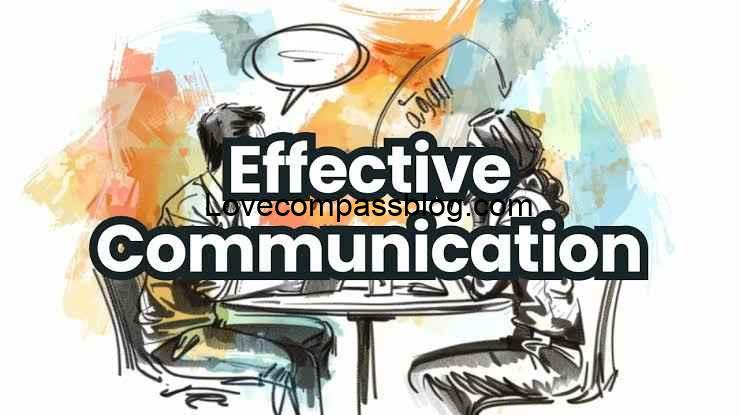4 Tips to Handling Disagreements on Major Life Decisions

Disagreements are inevitable in relationships, particularly when it comes to making major life decisions. These choices—whether related to finances, career paths, or family planning—carry substantial weight, often shaping the course of the couple’s future. The key to maintaining relationship harmony lies in effectively navigating these disagreements, allowing each partner to feel heard and respected while also considering the long-term impact of the decision.
What Constitutes Major Life Decisions?

A major life decision refers to a significant choice that can drastically alter the trajectory of one’s life. These decisions typically involve important milestones such as starting a family, buying a house, pursuing higher education, or making a career shift. Each of these choices impacts multiple aspects of life, including financial stability, emotional well-being, and overall quality of life.
In relationships, these decisions become even more complex because they affect not just one individual but the couple as a unit. What’s more, even personal decisions, like career changes, can have a profound impact on the relationship. For instance, a job relocation may require one partner to uproot their life, leave behind friends and family, and adapt to a new environment. Disagreements over major life decisions can therefore stem from conflicting priorities or values, and if mishandled, they may result in long-term resentment or frustration.
Examples of major life decisions that could lead to disagreements include:
- Whether or not to have children.
- How to handle a sudden job offer in a different city.
- When and where to buy a home.
- How to allocate savings or manage debt.
Factors Influencing Decision-Making in Relationships

When it comes to navigating disagreements on major life decisions, understanding the underlying factors that influence decision-making in relationships is critical. Some of these factors include:
- Individual vs. Joint Decision-Making: In a relationship, autonomy is important, but so is collaboration. Both partners need to recognize that even if a decision appears to primarily affect one person, it can still have a profound impact on the other. For instance, a partner who decides to change careers may affect the family’s financial stability. Thus, joint decision-making allows both individuals to weigh in on significant matters and reach a consensus that benefits the relationship.
- Partner Communication in Decisions: Open, honest communication is the cornerstone of successful decision-making in relationships. Both partners must feel comfortable expressing their thoughts, concerns, and desires. Clear communication ensures that misunderstandings are minimized and that both partners can approach decisions with mutual understanding. This is particularly important when one partner feels excluded from the decision-making process, which can breed resentment.
- Emotional Intelligence in Conflicts: Emotional intelligence is vital in handling disagreements. The ability to recognize, understand, and regulate one’s own emotions, while also empathizing with a partner’s feelings, helps foster a productive dialogue. It reduces emotional outbursts and promotes a calmer environment where important discussions can take place.
- Long-Term Impact of Life-Changing Decisions: Major life decisions have long-term effects, and couples should always keep the bigger picture in mind. Whether it’s having children, relocating, or purchasing a home, these decisions shape the future for both partners. Thinking beyond the immediate consequences and considering the long-term impact helps ensure that the decision aligns with both partners’ goals and values.
Common Conflicts in Major Life Decisions

Couples often face conflicts over major life decisions for several reasons:
- Decision-Making Power Dynamics: A common source of conflict is the perceived imbalance in decision-making power. One partner may feel entitled to make more decisions due to their financial contribution or expertise in a particular area. This dynamic can lead to friction, as the other partner may feel marginalized or undervalued.
- Making Decisions Without Consultation: It can be deeply frustrating for a partner when the other makes significant decisions without prior discussion. Whether it’s accepting a job offer or making a large financial investment, such actions can make the uninvolved partner feel disregarded. This lack of consultation undermines trust and can lead to ongoing resentment.
- Respecting Partner’s Input: Even when both partners are included in the decision-making process, problems arise when one partner doesn’t respect the other’s input. If one person feels their opinions are constantly dismissed or undervalued, it can create emotional distance. This erodes the sense of partnership that is essential for making difficult decisions together.
- Handling Disagreements With a Spouse: When disagreements occur, it’s crucial to adopt an approach that preserves the relationship. Rather than viewing disagreements as battles to be won, partners should see them as opportunities to better understand each other’s needs and priorities. This mindset promotes healthy communication and keeps the focus on finding a solution that works for both individuals.
Strategies for Conflict Resolution in Major Life Decisions

To navigate disagreements effectively, couples can adopt several conflict resolution strategies:
- Approach Conflict With Resolution in Mind: Instead of trying to “win” the argument, focus on reaching a resolution that benefits both partners. This requires setting aside egos and focusing on the shared goals of the relationship. In some cases, couples may benefit from mediation or professional guidance to help navigate especially challenging decisions.
- Effective Communication in Decision-Making: Clear communication is essential when discussing major life decisions. Both partners should practice active listening, ensuring they fully understand each other’s concerns and viewpoints before responding. This fosters a more collaborative approach, where each person’s thoughts are valued.
- Compromise in Relationships: Compromise is a crucial element in resolving disagreements over major decisions. While one partner may not get everything they want, finding a middle ground ensures that neither person feels completely disregarded. For example, if one partner wants to move to a new city for a job opportunity but the other is hesitant, they might agree to a trial period or explore remote work options.
- Emotional Intelligence in Conflict Resolution: Emotions run high during major life decisions, but emotional intelligence can help partners navigate these intense feelings. By remaining calm and empathetic, couples can prevent minor disagreements from escalating into full-blown arguments. Understanding each other’s emotional triggers and working to de-escalate conflicts is a valuable skill in managing disputes.
The Importance of Joint Decision-Making in Relationships
Joint decision-making not only strengthens the bond between partners but also ensures that both individuals are equally invested in the outcome:
- Reinforcing Partnership Through Joint Decisions: When couples make decisions together, it reinforces the idea that they are partners in every aspect of life. This shared responsibility fosters a sense of unity and ensures that each partner feels valued and heard.
- Balancing Decision-Making Roles: While one partner may have more expertise in certain areas, it’s important that both individuals feel they have an equal say in major life decisions. Striking a balance between individual knowledge and shared responsibility can help prevent feelings of dominance or neglect.
- Ensuring Fairness in Decision-Making: Fairness is essential in decision-making. Both partners should feel that their opinions are weighed equally, and any imbalances in power dynamics should be addressed. This ensures that no one feels overruled or disregarded in the decision-making process.
Resolving Disputes Over Significant Decisions

Despite best efforts, disputes over major decisions can and will happen. Having a strategy for managing these conflicts is crucial:
- Methods for Resolving Disputes: There are various approaches couples can take when disputes arise, such as seeking compromise, consulting a neutral third party, or giving each other space to cool off before revisiting the conversation. Mediation may be particularly useful for couples struggling with high-stakes decisions.
- Navigating Conflict in Relationships: Successfully navigating conflict requires patience, understanding, and a willingness to see the situation from the other person’s perspective. Couples should remember that the goal is not to win the argument but to find a solution that works for both partners.
- Dispute Resolution in Marriage: Conflict resolution in marriage is about teamwork. Both partners must be committed to finding a solution that strengthens the relationship rather than focusing on individual victories.
Dealing With One-Sided Decision-Making
In many relationships, one partner may take on the majority of decision-making responsibilities, either by choice or circumstance. However, this can create friction, especially if the other partner feels left out or ignored:
- When One Partner Makes All the Decisions: In some relationships, one person may dominate decision-making, either because they feel more capable or because the other partner defers to them. Over time, this dynamic can lead to resentment, as the partner who is left out may feel undervalued or powerless. Addressing this imbalance is crucial for maintaining a healthy partnership.
- Managing Poor Decisions in a Relationship: It’s natural for partners to make mistakes. However, repeated poor decisions—whether financial, emotional, or logistical—can strain the relationship. Instead of criticizing or blaming, couples should approach these situations with empathy and a problem-solving mindset, helping each other learn from mistakes without eroding trust.
The Role of Reconciliation in Major Life Decisions
Reconciliation is essential when disagreements arise. Without the ability to forgive and move on, even small conflicts can build up over time and create lasting damage:
- The Importance of Reconciliation in Marriage: Forgiveness and reconciliation are crucial in maintaining a healthy marriage. Holding onto grudges prevents healing and can lead to long-term resentment. Partners should prioritize working through their issues and finding closure after disagreements.
- How to Reconcile After Disagreements: Reconciliation involves acknowledging mistakes, offering sincere apologies, and committing to change. It’s important that both partners make an effort to understand each other’s perspectives and show genuine remorse when necessary.
Conclusion
Handling disagreements over major life decisions is a common challenge in relationships, but it doesn’t have to be a destructive one. With effective communication, emotional intelligence, and a willingness to compromise, couples can navigate even the most difficult decisions together. Mutual respect and understanding are key components in resolving conflicts, and when partners approach disagreements as opportunities to strengthen their relationship, they can emerge more united than before.
Whether it’s deciding on having children, managing finances, or choosing where to live, a collaborative approach fosters trust and strengthens the bond between partners. The ability to listen, empathize, and respect each other’s opinions ensures that even when disagreements occur, they don’t have to lead to long-term dissatisfaction. By focusing on joint decision-making and cultivating emotional intelligence, couples can successfully handle major life decisions while maintaining the health of their relationship.
Now that you have insights into handling disagreements on major life decisions, you can apply these principles in your own relationship. Take a step back, listen to your partner, and remember that you’re both working towards a shared future. Whether you’re at the beginning of a major decision or navigating through an ongoing conflict, using these strategies can help ensure that both you and your partner feel heard, respected, and united.





